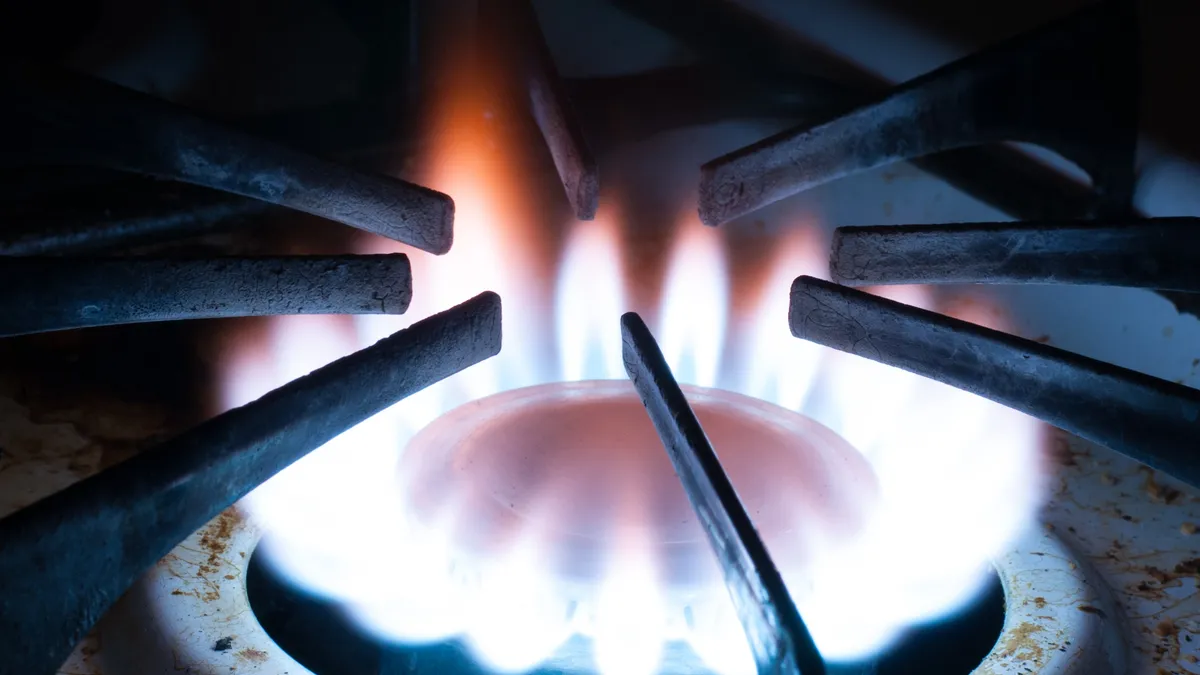Whether Pennsylvania passes a statewide ban on municipal natural gas bans, it won’t much affect Philly Office Retail. The adaptive reuse-focused real estate developer has already been opting for electricity over gas whenever possible.
“The natural inclination is to try to be more sustainable. If it’s something that can be done without hitting the pocketbook, then it makes sense to do it. It could be a win-win,” said Ken Weinstein, president of Philly Office Retail.
Bans on natural gas hookups in new buildings are spreading across the country. In 2019, Berkeley, California, was the first city to ban natural gas hookups in new buildings. So far, 77 cities in 10 states have taken some form of local government action, with most of those cities in California.
At the same time, however, 20 states have passed statewide bans on natural gas bans, preventing local governments from enacting similar restrictions.
“Any point of change in how we do things creates a little bit of upheaval in the system,” said Kim Cheslak, director of codes at the New Buildings Institute, a Portland, Oregon-based nonprofit focused on improving the energy performance of commercial buildings.
Here’s what multifamily developers and owners operating in markets that might be affected by such legislation need to know.
New York City takes the plunge
Just like electric cars, electrifying buildings is being presented as a pathway to minimizing pollution and dependence on fossil fuels. Greenhouse gas emissions from buildings and homes, primarily from burning fuel for heat, made up 13% of the U.S.’s greenhouse emissions in 2020, according to the EPA.
In addition, homes and apartments with gas stoves can have a 50% to 400% higher concentration of nitrogen dioxide — which can affect respiratory health, especially for those with asthma — than homes with electric stoves, per a study from RMI, a Colorado-based sustainability nonprofit.
In December 2021, New York City became the largest U.S. city to enact such a law; it will go into effect for new construction under seven stories in 2024 and in mid-2027 for taller structures.
“To my mind, this new law would be the beginning of the end of the fossil-fuel industry in America’s biggest city and a world capital,” Pete Sikora, the climate director of New York Communities for Change, told The New York Times.
New York could be the first to pass a ban on natural gas hookups in new construction at a statewide level. It would mandate all-electric new buildings after 2023 (except where deemed not feasible due to the unavailability of equipment and labor), though legislation is stalled.
The bans on bans
“This shouldn’t be a partisan issue,” said Rachel Golden, a principal on the carbon-free buildings team at RMI. “[Ronald] Reagan was pushing all-electric homes. It’s more about the evolution of construction and building practices and the direction they are going.”
But for now, the debate continues. Most movement toward banning natural gas hookups has been taking place in blue or blue-leaning states, while pre-emptive bans on natural gas bans have been adopted in red-leaning states. Similar bans on bans are currently being considered in the battleground states of Michigan and Pennsylvania.
Opponents of natural gas bans cite the preference for cooking with gas heat and the costs of electrification.
“This is not really a climate solution,” Daniel Lapato, senior director of state affairs for the American Gas Association, told Pew Charitable Trusts about natural gas bans. “When you start eliminating these options, you have to look at the cost implications to the homeowner.”
Energy in Depth, a project of the Independent Petroleum Association of America, released its own statement on RMI’s gas stove study, calling it “misleading,” “tone-deaf,” and “skewed to fit an electrification movement that promises to deliver little benefit at an enormous cost.”
Despite the controversy, Cheslak said that building electrification is reaching its “solar moment.”
“For a long time, with the cost of solar, it seemed no one was ever going to have solar on all of their buildings. Now there are solar panels everywhere,” she said. "The pace of technological change and development that is happening around this is because we’re in a climate crisis."
Because of the pace of climate change, she thinks that in as soon as a couple of years, most Americans won't view a natural gas ban as controversial.
A case-by-case basis
In Philadelphia, Weinstein said that in the past, he and his fellow developers defaulted to installing natural gas hookups supplemented by electric. But that’s changing — especially as technology evolves.
Dealing with one utility provider instead of two means less hassle overall. “If we can do without PGW and just have PECO, it’s a 50/50 shot” that the project will go more smoothly, he said of the city’s gas and electric utilities, respectively.
Technology has also improved — especially for heat pumps. “It used to be unthinkable to use a heat-pump system for a two- or three-bedroom apartment,” he said. “We used to install them for just the smallest units — the studios and small one bedrooms. Now the technology’s very different.”
Philly Office Retail recently completed two all-electric projects in the area: the conversion of the former Germantown Masonic Temple into 16 apartments and two storefronts and the conversion of a factory into 32 apartments.
The firm is currently working on 13 projects and deciding gas or electric “on a case-by-case basis,” Weinstein said. If a building already has natural gas hookups in good working order, they’ll still use them, but if not, they lean toward electric.
In recognition of the movement toward electrification, Weinstein said that they are installing EV stations at all of their projects and, in the future, he expects that every parking spot at their developments will have an EV charger.
If in the future electric becomes more expensive than gas, people could easily go back to natural gas again, he said. But if the competitiveness of electric prices “stay where they are, I think electric will be to the go-to 10 years from now.”























